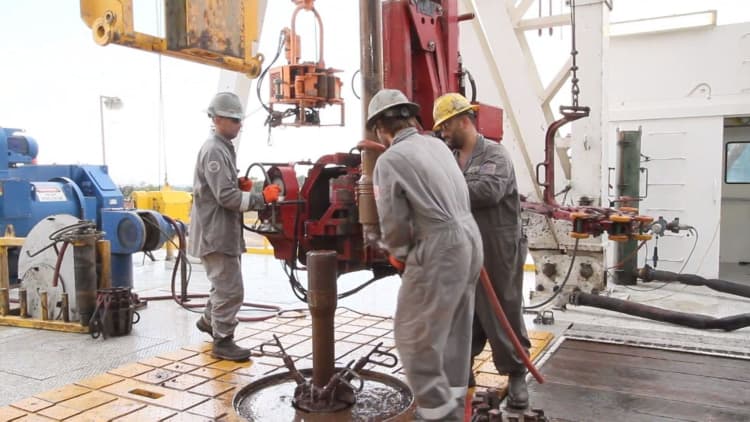
OPEC's oil output fell in August for the first time since March as several key exporters in the group throttled back production according to a monthly tally released Tuesday.
The 14-member cartel pumped 32.76 million barrels a day last month, according to independent sources that monitor OPEC's production. That marks a 79,100 barrel-a-day drop from July.
OPEC has partnered with other producers, including Russia, to keep 1.8 million barrels a day of oil production off the market. The exporters are trying to drain oversupply from the market and drive down global stockpiles of crude.
Oil prices got support this week as Saudi Arabia held discussions about extending the deal beyond March. Crude oil stockpiles in the OECD, a group of mostly developed nations, stood at 195 million barrels above the five-year average in July, OPEC said.

Rising production in two OPEC member countries, Libya and Nigeria, has made it harder to reduce those stockpiles. OPEC exempted the two nations from cutting production because their output had already tanked due to domestic conflicts. But both nations restored output more quickly than expected.
The trend reversed last month in Libya, where daily crude oil production fell by about 112,000 barrels, to 890,000 barrels a day. Libya's Sharara oil field, the nation's largest, continues to see sporadic disruptions due to protests.
Nigeria's daily output more than offset that drop, jumping by 138,000 barrels, reaching 1.86 million barrels a day.
Production from top exporter Saudi Arabia also dipped slightly to just above 10 million barrels a day. Saudi output was trending higher in recent months. The kingdom cut production deeply early in the year, which compensated for other OPEC members that were not hitting their quotas.
Two of those nations, Iraq and the United Arab Emirates, cut production in August but were still pumping above levels they agreed to last winter. Production also continued to fall in Venezuela, which is in the grip of a full-blown economic crisis.

OPEC slightly raised its outlook for global oil demand in 2017 and 2018. The cartel now believes the world will consume 96.77 million barrels a day this year and 98.12 million barrels a day next year.
The revision is partly due to better-than-expected economic growth. OPEC also revised its forecast for world economic growth in 2017 from 3.4 percent to 3.5 percent.
"Global economic growth momentum has gained traction lately and has become more balanced, with all major economies now showing positive growth this year, a trend that is forecast to continue into 2018," OPEC said.
OPEC does not expect Hurricane Harvey to impact U.S. economic growth much, saying the reconstruction effort along the Gulf Coast will offset the loss in economic activity from the devastating storm.


